15 Natural Remedies for Cough and Cold - Effective Home Remedy
Coughing is a common medical complaint; however, it's usually not a sign of anything serious. Prolonged coughing can also be symptomatic of a number of conditions. It is a sudden and often repetitive process that helps to clear the large breathing passages (trachea and bronchi) from secretions, phlegm, foreign particles, irritants, and microorganisms.
A productive or wet cough occurs when a person coughs up mucus or phlegm. Nonproductive coughs or dry coughs are coughs that do not produce any mucus. Wet coughs may be due to an infection, such as pneumonia or bronchitis. However, dry coughs often follow respiratory illnesses, such as flu and colds. Most coughs clear up on their own within three weeks and don't require treatment.
A chronic cough can be more than just an annoyance. It can disrupt sleep, cause discomfort, interfere with work and social interactions, and even indicate an underlying health condition.
The good news is that many natural remedies for constant coughs help soothe it. Here are some effective ways to stop coughing naturally.
Natural home remedies for cough and cold
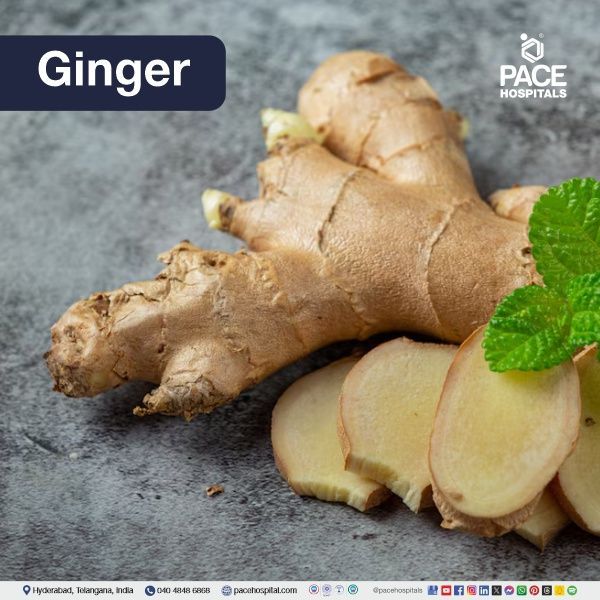
Ginger
Ginger (Z. officinale, Zingiberaceae) is one of the most popular natural home remedies for cough and sore throat. The active compound in ginger that helps soothe cough is gingerol, which has anti-inflammatory and antimicrobial properties. Additionally, it can help relax the airways and reduce irritation.
Crushed fresh ginger is boiled with water, and this herbal solution is drunk three to four times per day for relief from continuous coughing, sore throat and even congestion. Some honey and lemon juice may be recommended to add. Another alternative is to chew fresh raw ginger throughout the day to alleviate coughing. Many other options are available for taking ginger, such as combining ginger and Tulsi. Ginger tea can also help relieve cough. Dry cough natural remedies for adults include chewing a piece of fresh ginger and sprinkling salt on it.
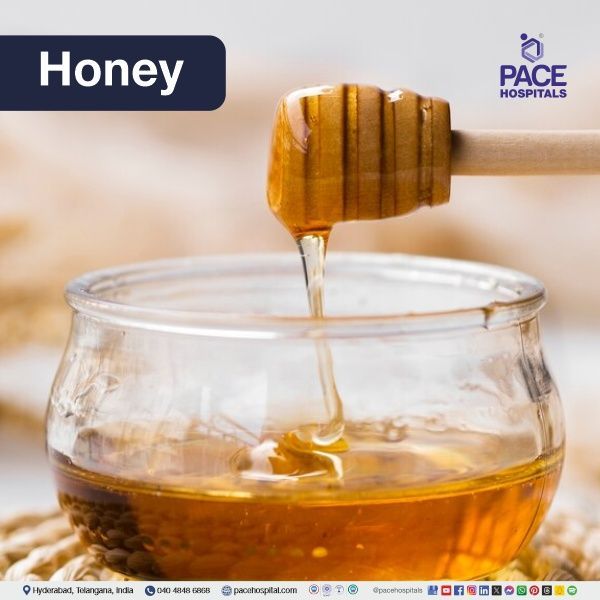
Honey
Honey is a long-standing remedy that is easily affordable and accessible so that it could be worth a try. It can provide more effective relief from coughs than over-the-counter (OTC) medicines containing a cough suppressant (dextromethorphan).
Dry coughs could be relieved by adding honey to hot milk, which also helps to alleviate chest pain from sustained coughing. Mixing honey in warm lemon water or drinking tea is beneficial for soothing coughs and sore throats. For added benefits from honey's analgesic properties, a teaspoon of plain honey should be swallowed on an empty stomach to clear mucus and soothe the throat.
These home remedies can relieve the various symptoms of a cough without the side effects that come with pills and cough syrups. However, if anyone experiences continuous coughing for more than two weeks, it's important to seek professional advice. Consulting a healthcare professional is a responsible and caring step to ensure your health and well-being.
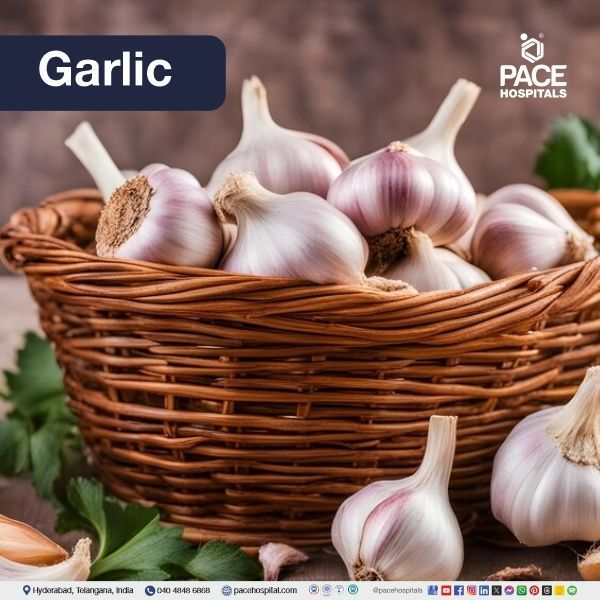
Garlic
Garlic (Allium sativum L. (Amaryllidaceae)) is an all-rounder treatment for preventing common cold, cough, lung tuberculosis, asthma, wound infections, malaria and other conditions. It enhances immune function and prevents common cold and flu symptoms such as cough. It also exhibits anticancer and chemopreventive activities. Allicin, a compound found in garlic, is an effective treatment for common colds and their symptoms.
In addition, aged garlic extract has neuroprotective, antioxidative and hepatoprotective properties, whereas other preparations may stimulate oxidation.
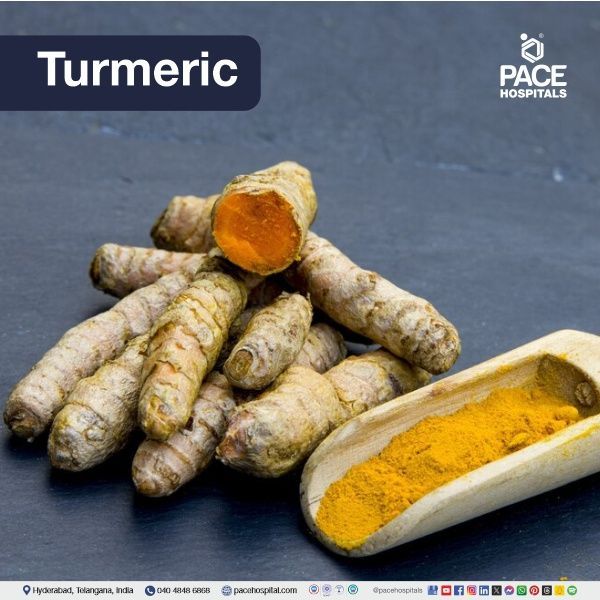
Turmeric
Turmeric (Curcuma longifolia L., Zingiberaceae) is known for its therapeutic effects on coughs, especially dry coughs. Curcumin, a substance found in turmeric, is anti-inflammatory and antibacterial, which might be helpful for several things, such as dry coughs.
A warm glass of milk with half a teaspoon of turmeric powder can also provide relief from cough. To prepare a remedy, mix one teaspoon of turmeric powder with one teaspoon of black pepper and boil it in half a cup of water. One can also add cinnamon sticks for extra flavour. After boiling, mix in one tablespoon of honey and drink this daily until a cough patient feels better.
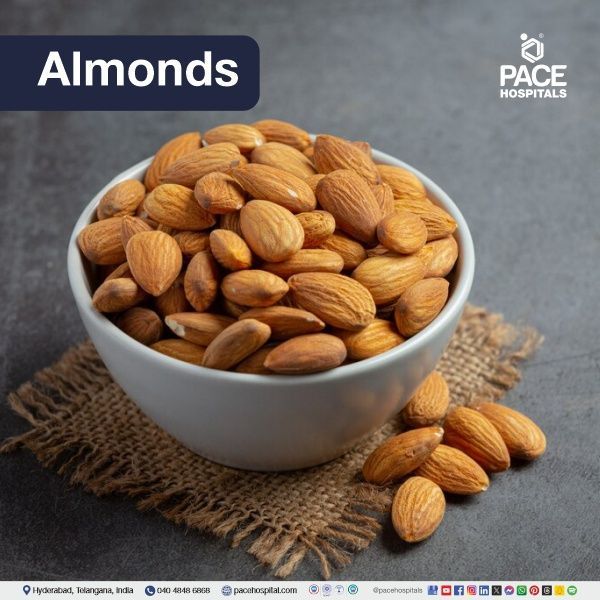
Almonds
Almonds (scientifically called
Prunus amygdalus Batsch, Rosaceae) have nutritional properties that help subside symptoms of cough. Soak five to six almonds in water for 8 to 10 hours. Once soaked, blend the almonds into a smooth paste and mix in one teaspoon of butter. Consume this mixture three to four times a day until symptoms improve.

Pineapple
Pineapple, scientifically known as Ananas comosus (L.) Merr. from the Bromeliaceae family contains bromelain, a mixture of proteolytic enzymes or proteases (protein-digesting enzymes).
Bromelain suppresses coughs, loosens mucus in the throat, and alleviates sinusitis and allergy-related sinus issues, which can contribute to coughing and mucus production. However, bromelain supplements should not be taken by children or by adults who are on blood thinners. The supplement has been shown to provide immediate improvement when combined with honey.

Grapes
Grapes (Vitis vinifera L., Vitaceae) have expectorant properties that help release mucus from the respiratory system. The quicker the mucus is eliminated; the sooner coughing can subside. Grapes can be eaten directly or consumed as fresh grape juice. Combining grape juice with a spoonful of honey can be both soothing and effective.
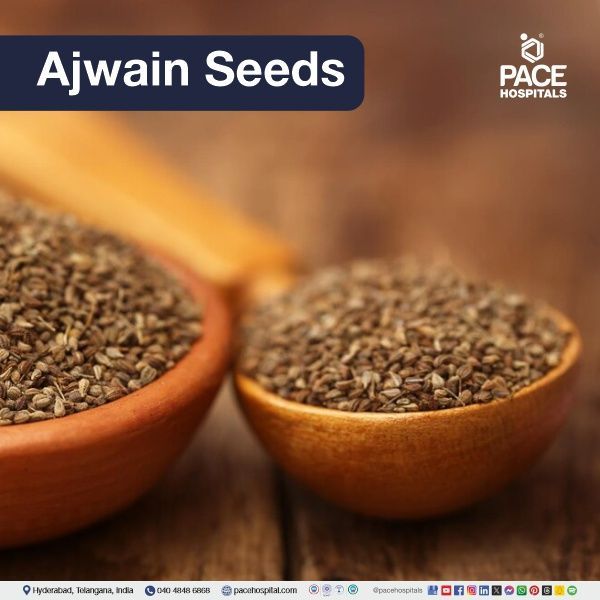
Ajwain seeds
Ajwain, scientifically known as Carum copticum L. (from the Apiaceae family), seeds contain approximately 50% thymol, a well-known antibacterial monoterpene. This compound is recognized for enhancing the immune system and helping to ward off colds, flu, and other viral infections. Research shows that the antitussive (cough-relieving) effect of C. copticum is even greater than codeine, largely due to its main constituent, carvacrol. Additionally, it exhibits a bronchodilatory effect on asthmatic patients' airways, comparable to theophylline's.
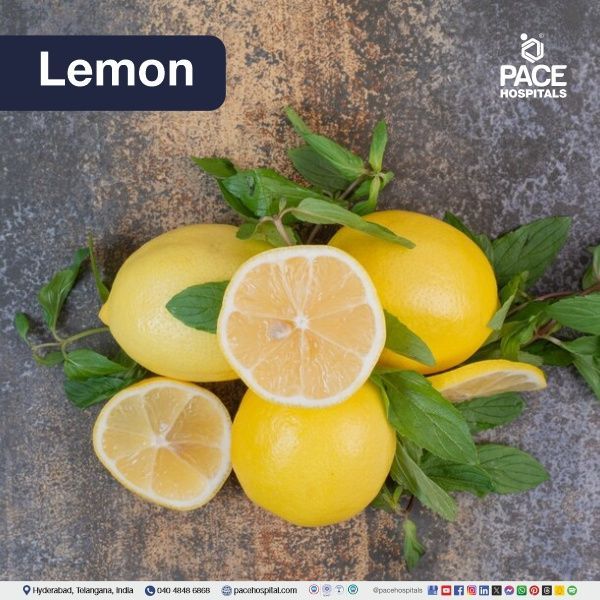
Lemon
Lemons (Citrus limon) can relieve coughs, reduce inflammation, and boost vitamin C (infection-fighting). For a simple cough syrup, mix two tablespoons of lemon juice with one tablespoon of honey and drink it several times a day. Another option to use lemons is to blend lemon juice with a pinch of cayenne pepper and a little honey and then drink it.
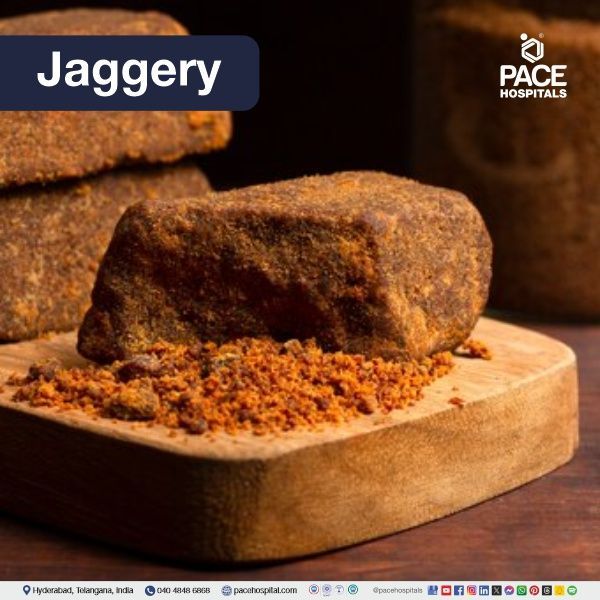
Jaggery
Jaggery remedies are useful to calm congestion and cough. Sputum buildup can cause a sensation of congestion in the chest and respiratory tract; expelling it relieves coughing and congestion. Boil a few peppercorns in water for about 20 minutes. Then, mix in a little cumin and jaggery (cane sugar from
Saccharum officinarum L., a member of the Poaceae family) and drink it. To help expel phlegm, cut a quarter of an onion, place a small piece of jaggery in the center, and chew on it.
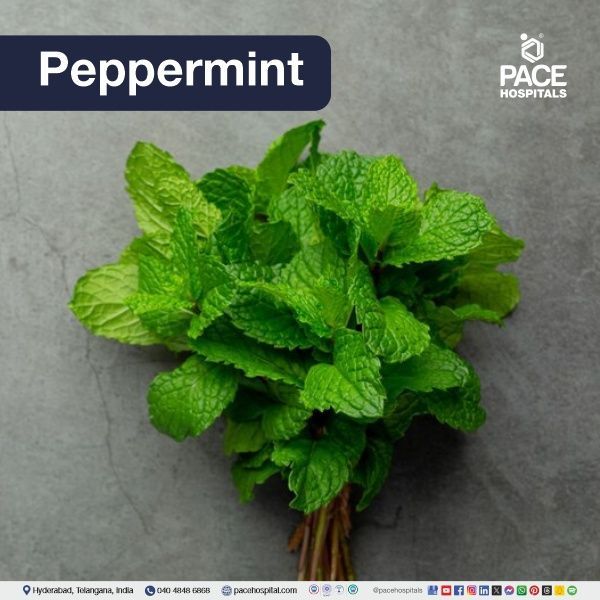
Peppermint
Peppermint (Mentha piperita L., family Lamiaceae) leaves, and eucalyptus oil (Eucalyptus citriodora Hook., family Myrtaceae) are both well-known for their healing properties. The active ingredient in peppermint is menthol which acts as a decongestant that soothes the throat, helps break down mucus. Health can also be promoted through peppermint tea or inhaling peppermint vapor via a steam bath. Additionally, an ointment made from eucalyptus oil, coconut oil, and beeswax can relieve coughs.
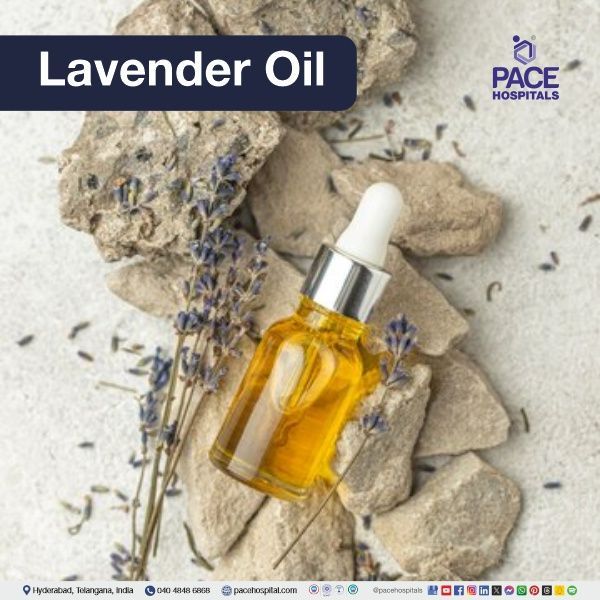
Lavender oil
Lavender oil (Lavandula angustifolia L., Lamiaceae) has soothing and calming effects on the nerves. It is also beneficial for whooping cough, asthma, colds, bronchitis, laryngitis, halitosis (bad breath), and throat infections. Additionally, lavender oil effectively alleviates headaches, migraines, and insomnia. The vapour from steamed lavender flowers can be inhaled as a remedy for colds and coughs.
Probiotics
Probiotics are beneficial microorganisms that can offer a variety of health advantages. While they don't directly relieve a cough, they help balance gastrointestinal flora (gut flora). Lactobacillus, a good bacterium in dairy, can reduce the likelihood of a cold or flu and sensitivity to specific allergens like pollen. This can support immune system function throughout the body. Fortified milk is an excellent source of Lactobacillus. However, one should be cautious, as dairy may make phlegm thicker.
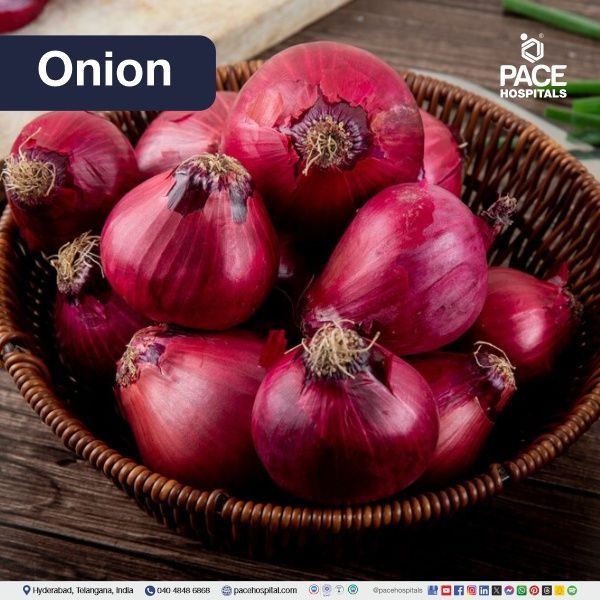
Onion
Onion (scientifically called
Allium cepa L, Amaryllidaceae) is one of the simplest home remedies for coughs. Breathing in its strong vapours can help alleviate coughing. A cough syrup can be made by combining baked onion juice, comfrey tea, and honey. Drink this daily to relieve a dry cough. Another option is to mix half a teaspoon of onion juice with one teaspoon of honey. Swallow this solution at least twice daily to help soothe your throat and reduce coughing.
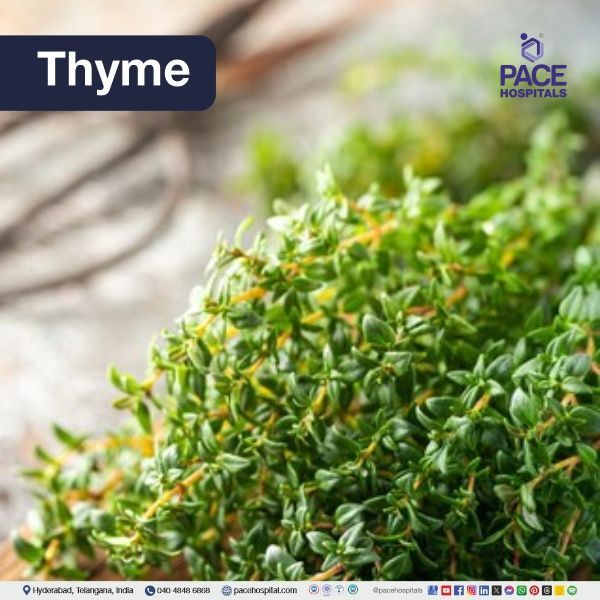
Thyme
Thyme (Thymus vulgaris L., Lamiaceae) is commonly used to treat respiratory diseases. The essence extracted from thyme leaves helps relieve short-term bronchitis and coughing. The leaves contain flavonoids that relax the throat muscles involved in coughing and reduce inflammation.
To make thyme tea at home, take two teaspoons of crushed thyme leaves and add them to one cup of boiling water. Cover the cup and let it steep for 10 minutes, then strain the mixture. Thyme relaxes the muscles of the trachea and bronchi, opening up the airways. This results in less coughing and increased comfort.
Frequently Asked Questions (FAQs)
What is the natural remedy for cough during pregnancy?
Most natural remedies for cough during pregnancy are ginger, valerian raspberry, and cranberry, the most commonly used herbs to treat colds, cough and nausea. Additionally, sipping warm water with honey and lemon can soothe the throat and hydrate it. Herbal teas, including ginger or peppermint, may also provide relief. However, consult with a healthcare professional before trying new remedies.
What are the natural remedies for colds and coughs in babies?
For babies with colds and coughs, using a cool-mist humidifier can help keep the air moist and ease congestion. Gentle chest rubs with diluted essential oils like eucalyptus may provide comfort. Honey should not be given to children younger than 12 months, as it might contain dormant Clostridium botulinum endospores, raising concerns about infant botulism. It also has a significant amount of inverted sugar, one of the food constituents related to tooth decay in small children.
What are the natural remedies for severe cough?
Certain natural remedies include ginger, honey, turmeric or steam inhalation can alleviate the suffering of cough by soothing the throat however they may not completely cure the underlying cause. It is recommended to consult a healthcare physician if the cough continues or is associated with significant symptoms.
What is a natural remedy for acid reflux cough?
A natural remedy for acid reflux cough includes sipping warm herbal teas, including ginger or chamomile, which can soothe the throat and aid digestion. Additionally, consuming a teaspoon of honey may help coat the throat and reduce irritation. Staying upright after meals and avoiding trigger foods can also alleviate symptoms.
How do you recover from an allergic cough using natural remedies?
To recover from an allergic cough, try inhaling steam from hot water to ease congestion and soothe the throat. Honey can help reduce irritation, while drinking warm herbal teas like peppermint or chamomile may also provide relief. Additionally, keeping the environment free from allergens, such as dust and pollen, can help prevent further irritation.
What are the natural remedies for cough and cold?
Natural remedies for cough and cold include drinking warm fluids, such as broth or herbal teas to stay hydrated and soothe the throat. Honey, particularly when mixed with warm water or tea, can help relieve cough symptoms. Inhaling steam can ease congestion, and getting plenty of rest is essential for recovery. Furthermore, garlic and ginger are known for their immune-boosting properties, which may help shorten the duration of illness.
What are the natural remedies for cough and chest congestion?
For cough and chest congestion, drinking warm fluids such as herbal teas can help thin mucus and soothe the throat. Using a humidifier or inhaling steam from hot water can ease congestion. Lemon and honey mixed in a glass of warm water may provide relief, while turmeric milk may also help due to its anti-inflammatory properties. Gentle chest massages can improve circulation and promote drainage.
What are the natural remedies for a smoker's cough?
Natural remedies for a smoker's cough include honey, cinnamon, garlic, ginger, clove, cardamom, lemon, turmeric, onion, and liquorice, which can help soothe the throat and reduce irritation.
What are the natural remedies for wet cough?
Natural remedies for a wet cough include honey, which soothes the throat, and a few cups of ginger tea a day, which may help soothe throat inflammation while keeping hydration. Other remedies include thyme and clove tea, vitamin C, steam inhalation, steam bath, humidifier, and hydrating well.
Share on
Request an appointment
Fill in the appointment form or call us instantly to book a confirmed appointment with our super specialist at 04048486868












